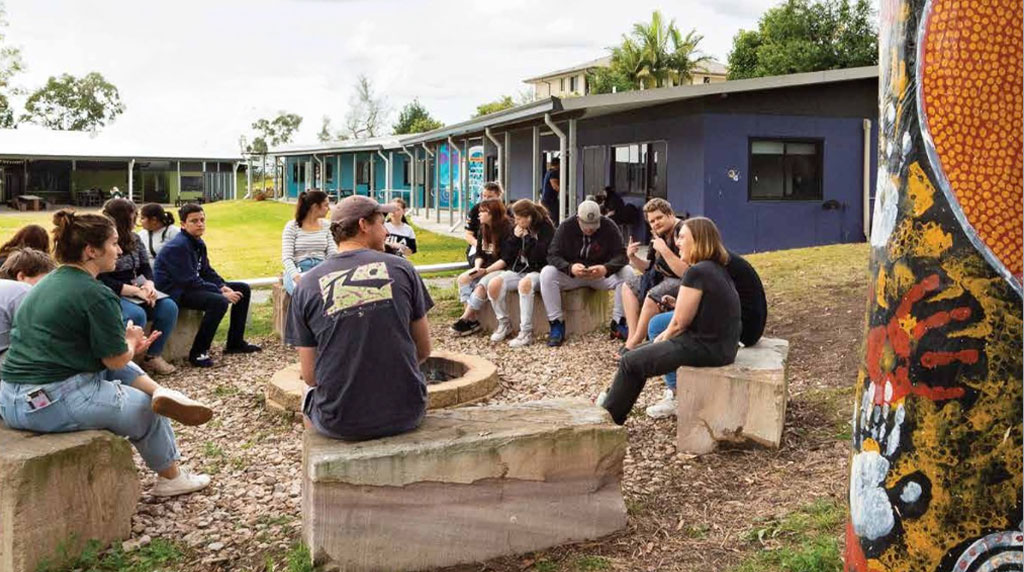Edmund Rice Education Australia Flexible Schools responds to the needs of young people in our communities through the creation of Flexible Learning Centres. They provide young people with an opportunity to engage in education in a flexible and supported learning environment.
The young people who attend our schools have typically experienced one or more significant and complex educational, social, developmental, psychological, health, legal or family situations which demand unique responses. Such interventions are embedded within an educational framework but also typically involve medical, multidisciplinary, legal and/or social support personnel network systems.
Each Flexible Learning Centre is a registered school and offers educational pathways for young people in years 7-12 who have difficulty accessing conventional school for a variety of reasons. They work with young people to:
• improve cognitive and academic skills
• enhance social and emotional competency
• strengthen cultural and spiritual life
• help find employment or further training
• build community connection

Flexible Learning Centres are generally small schools. The approach of flexible timetabling, smaller learning groups, strong staff/young people relationships and relevant curriculum enables the delivery of creative teaching responses to individual young people’s learning needs, incorporating their cultural and spiritual backgrounds. Our schools offer flexible learning choices characterised by a focus on:
• the individual needs of young people
• developing a learning community
• learning that is critically reflective
• promoting a culture of success
A fundamental component of flexible learning is an emphasis on relationship development. Complementing this process is the provision of a values and relationship education program, which draws on the common ground principles and relates to the life experiences of young people.

